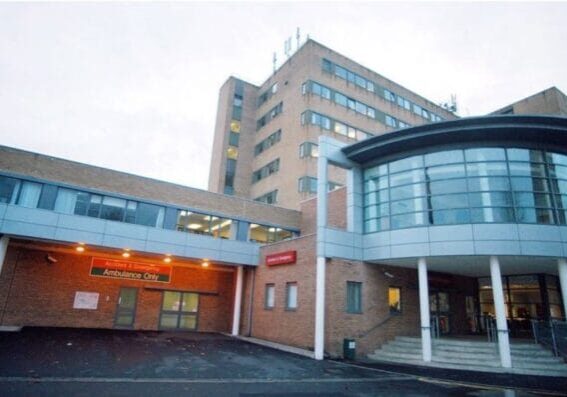Women’s Health
This page aims to highlight Women's health, support services and groups currently available across Somerset.
Please note that some resources will link to external and national webpages.
A-Z Women's Health
Updates from Somerset on Women's Health
A-Z Women's Health
Adenomyosis
Adenomyosis is a condition where the uterus lining starts to grow into the muscle of the uterus.
Symptoms:
- Painful periods (dysmenorrhoea)
- Heavy periods (Menorrhagia)
- Pelvic pain
- Bloating/heaviness in the abdomen
- Pain during sex
- Some people won’t experience symptoms
- It is also important to note that adenomyosis and endometriosis may present similarly or both be present
Treatment options:
- IUS e.g. Mirena
- Other hormonal contraception
- Tranexamic acid / NSAIDs (Non-Steroidal Anti-inflammatory drugs)
- Endometrial ablation
- Hysterectomy
Breast Health
Breast care in Somerset
Somerset Foundation Trust has two breast care units, one at Musgrove Park Hospital and one at Yeovil Hospital. There is also a breast screening service which operates in 2 vans which rotate around the county as well as a static site at Musgrove park Hospital.
Cervical Screening
Cervical screening, which used to be called smear test, is a test to check the health of the cervix and help prevent cervical cancer. It's offered to women and people with a cervix aged 25 to 64.
What to expect
Perhaps you've been invited to attend your first cervical screening, or maybe you've been putting it off? In our video 'Don't Fear the Smear', you'll meet Liz, a Practice Nurse based in Somerset. Liz sees hundreds of women each year and understands why some people feel nervous about attending their cervical screening. In this video she shows you around her office and talks about what you can expect when you book an appointment.
What is it, why is it important and how to book
Visit our National NHS website for further information about cervical screening to help you make an informed decision.
Contraception
In Somerset, SWISH provides free, accessible and confidential sexual health services including all types of contraception, and STI testing and treatment.
The service is non-judgmental and for people of all ages, genders and orientations. Everyone is welcome, and you don’t need to see a GP first.
Swish services are delivered by Somerset NHS Foundation Foundation Trust and is commissioned by Somerset Council.
Endometriosis
What is Endometriosis?
Endometriosis is a condition where tissue similar to the lining of the womb grows in other places. This long-term condition can affect women of any age and have an impact on a person’s life. We don’t know what causes endometriosis, and there is currently no test which can diagnose endometriosis with certainty. There is no cure; however, there are treatments to support the management of symptoms.
Symptoms:
- Pelvic pain – usually worse during your period
- Period pain that prevents you from doing normal activities
- Pain during/after sex
- Pain when passing urine/stool
- Nausea, constipation, diarrhoea, blood in urine/stool
- Difficulty getting pregnant
- Heavy periods
- Bloating
- Fatigue
Diagnosis:
Endometriosis may be suspected if these symptoms are present. If you start getting symptoms, it is recommended that treatment to manage symptoms is started. However, if your symptoms continue impacting on your daily activity, your GP may refer you to Gynaecology or a Specialist Endometriosis Centre for further investigation.
Endometriosis and Menopause:
If you have had surgery to manage their endometriosis, and this has resulted in induced menopause e.g. you have had your ovaries removed, then you may need support to manage your menopause symptoms.
Consultation Advice:
It may be helpful to complete a symptom diary if you think you might have endometriosis
Gynaecological Cancers
Both Yeovil and Musgrove Park Hospital offer diagnostic services for women with suspected cancer.
The gynaecology consultants, consultant radiologists, consultant histopathologist, and clinical nurse specialists at Yeovil Hospital work closely with the gynaecology oncology team at Musgrove Park Hospital in Taunton for the planning of patient care.
The service offers diagnostic radiological investigations as well as clinical assessment to diagnose cancer.
Low grade cancer will be operated on locally either at Yeovil Hospital or Musgrove Park Hospital with high grade cancers or more complex cases receiving treatment by specialists based at Musgrove Park Hospital.
There are support services for women with previous diagnosis of cancer or undergoing treatment supported by our clinical nurse specialist.
In addition to clinical care, the unit works closely with the Yeovil Hospital research department to participate in national cancer research studies and trials to inform future cancer care.
Healthy Lifestyle
There are lots of ways you can find support and advice for maintaining a healthy lifestyle in Somerset:
Healthy Periods
What is a period?
A period is when someone bleeds from their vagina, this happens every month and will usually last for 2-7 days. Periods may also be called menstruation, and the monthly cycle is known as the menstrual cycle.
A period happens when an egg is released from one of the ovaries and travels to the womb. When this happens, the womb lining gets thicker so that the womb is ready for pregnancy if the egg is fertilised. However, if the egg is not fertilised, the thicker womb lining isn’t needed, so it sheds – causing a period.
Periods start during puberty, usually at around age 12 (but can be earlier or later, it is different for everyone).
When periods stop, usually between 45-55 years of age, this is known as menopause.
Indicators of heavy periods include:
- Needing to change pad/tampon every 1-2 hours
- Needing to use multiple period products together
- Periods lasting more than 7 days
If your periods are impacting your day-to-day life, it is suggested that you contact your GP for support.
Painful Periods (Dysmenorrhoea):
Dysmenorrhoea is painful cramping which occurs before and/or during your period.There are 2 types: Primary Dysmenorrhoea (this is when there isn’t a clear cause) and Secondary Dysmenorrhoea (caused by an underlying condition e.g. fibroids, adenomyosis, endometriosis)
Premenstrual Syndrome (PMS):
PMS is a condition that can have behavioural, psychological and physical symptoms occurring between ovulation and the start of menstruation (Luteal Phase).
- Symptoms include but not limited to:
- mood swings
- feeling depressed or irritable
- feeling upset, anxious or emotional
- tiredness or trouble sleeping
- bloating or cramping
- breast tenderness
- headaches
Things that may help include:
- Lifestyle factors (exercise/diet/sleep)
- Hormonal treatment
- CBT
- SRRIs (anti-depressants)
Premenstrual Dysphoric Disorder (PMDD):
PMDD is a more severe form of PMS and can have more of an impact on a person’s daily life
The cause for PMS and PMDD is unknown (though we think it is related to the changes in hormone levels throughout the menstrual cycle), however, it is important to note that people with PMS will have varying experiences and impact on their day to day lives.
HPV Vaccinations
The HPV vaccine is now offered to boys as well as girls to protect all young people from being infected by the human papillomavirus (HPV). It also lowers the risk of developing some cancers later in life, such as:
- cervical cancer
- some mouth and throat cancers
- some cancers of the bottom and genital areas.
The HPV vaccine does not protect against other sexually transmitted infections.
Somerset SAINTS offer community clinics by appointment only. For an appointment, please contact 0300 323 0032 or email somersetsaint@somersetft.nhs.uk detailing your child’s name, date of birth, school and your preferred clinic location.
Menopause (and Perimenopause)
What is the menopause?
Menopause is when your periods stop, generally between 45-55 years of age. This happens because your hormone levels get lower. Menopause can be diagnosed when you have not been having periods for 12 months.
Before this, you may experience perimenopausal symptoms.
Surgical or chemical menopause is a sudden form of menopause that starts if a person has had their ovaries removed, or affected by cancer treatment.
Symptoms:
When a person is menopausal, they won’t experience all of these symptoms, and they will look different for everyone:
- Changes to periods
- Anxiety/panic attacks /low mood/mood swings/increased PMS
- Poor memory/reduced concentration/lack of motivation
- Reduced confidence
- Poor sleep
- Fatigue
- Flushes and sweats
- Weight gain/change in body shape
- Palpitations
- Increased headaches/migraines
- Aching muscles/painful joints
- Thinning hair
- Dry eyes/ears
- Dry mouth/burning tongue/metallic taste
- Dry/itchy/spotty skin
- Tinnitus
- Restless legs
- Increased allergies
- Dry, sore or itchy vagina and/or vulva
- Pain during sex
- Urinary symptoms including recurrent UTIs
Management Strategies:
- HRT (transdermal or oral – to help manage the symptoms of menopause)
- Local Estrogen (for managing vaginal, vulval and urinary symptoms)
- Testosterone (for low sexual desire)
Aside from HRT, there are some other management strategies that may help. These include:
- Cognitive Behavioural Therapy (CBT)
- Pelvic Health Physiotherapy
- Lifestyle changes i.e. high protein diet; weight training
Polycystic Ovaries (PCOS)
What is PCOS?
PCOS is a common condition affecting how a person’s ovaries function.
The 3 main features are:
- Irregular periods
- Excess androgen, a hormone which may cause physical symptoms e.g. excess facial/body hair
- Polycystic ovaries
Symptoms:
- Irregular periods
- Fertility issues e.g. difficulty getting pregnant
- Excessive hair growth (hirsutism)
- Weight gain
- Thinning hair / hair loss
- Oily skin / acne
Complications:
- Infertility
- Cardiovascular disease
- Psychological disorders e.g. anxiety/depression
- Obstructive sleep apnoea
- Metabolic disorders e.g. Type 2 Diabetes
- Endometrial Cancer
- Pregnancy complications e.g. pre-eclampsia/gestational diabetes
To support diagnosis:
- Hormone tests to rule out other potential causes as per NICE guidelines: Investigations | Diagnosis | Polycystic ovary syndrome | CKS | NICE
- Ultrasound scan to assess whether your ovaries are polycystic (>20 follicles in at least one ovary)
- If 2 out of the 3 main features are present, PCOS should be diagnosed
Management Strategies:
- Management of the clinical features of PCOS e.g. support managing irregular or heavy periods, or support managing acne
- Lifestyle e.g. diet and exercise to support healthy weight
- Assessing for and managing any complications due to PCOS
Pelvic Floor Health
What is Pelvic Health Physiotherapy?
Pelvic health physiotherapy is the treatment of conditions related to the pelvis and pelvic floor. The pelvic health physiotherapy team are passionate about helping women resolve their problems, improve quality of life and return to activities.
What can it help with?
Pelvic physiotherapy can help with problems such as:
- Stress urinary incontinence
- Urgency urinary incontinence
- Mixed (stress and urgency) urinary incontinence
- Overactive bladder – needing to pee often
- Voiding dysfunction – difficulty peeing, feeling like you are finding it difficult to start/stop/fully empty the bladder
- Pelvic organ prolapse
- A 3rd or 4th degree perineal tear after birth
- Pain during or after sex
- Vaginal and/or vulval pain
- Constipation
- Faecal incontinence
- Anal pain
- Pregnancy related conditions such as back or pelvic girdle pain.
- Diastasis rectus abdominus – when your abdominal muscles separate
- Pelvic physiotherapy can also help with the symptoms of existing conditions such as endometriosis, or be used to help symptoms of menopause.
Treatment approaches:
Physiotherapists utilise a biopsychosocial approach to holistic care and management of pelvic health symptoms.
Treatments include pelvic floor exercises, bladder and bowel re-training mindfulness, stress management, diet and physical activity as well as manual therapy and biofeedback and electrical stimulation tools.
Prevalence of pelvic floor associated disorders:
- Urinary incontinence can range from 25-45% in women
- Pelvic organ prolapse is reported in between 40-60% of people who have had children
- Chronic constipation can vary from 11-18%
- Sexual dysfunction in women is estimated from 30-49%
Referrals:
Your GP will be able to make a referral for you into pelvic physiotherapy if you meet the referral criteria.
Pelvic Organ Prolapse
What is Prolapse?
Prolapse is a common condition affecting over 1 in 10 women over the age of 50. It is when of one or more of the pelvic organs get lowered from their normal position into the vagina, leading to a feeling of heaviness around the tummy and genitals, dragging discomfort in the vagina. Mild prolapse can often have no symptoms, but may be diagnosed if someone goes for their cervical screening appointment (Smear Test) or for other reasons.
Symptoms:
- Heaviness within vagina and/or lower tummy
- Dragging sensation
- A bulge within your vagina that you can see/feel
- Pain during or after sex
- Lack of sensation during sex
- Bladder dysfunction – incomplete emptying, increased urgency
- Urinary incontinence
- Constipation
- Incomplete bowel emptying
Risk Factors:
- Previous pregnancies + childbirth
- Being overweight
- Perineal trauma
- Perimenopause and menopause
- Having a hysterectomy
- Having long term constipation
- Chronic respiratory conditions such as COPD and cystic fibrosis
- Joint hypermobility syndromes such as Ehlers-Danlos or Marfans syndromes
How is it treated?
Treating prolapse is dependent on the severity of the prolapse, alongside other factors such as age, general health, sexual activity and whether someone has completed their family. Options include:
- Lifestyle Management – diet, weight management, addressing constipation
- Pessaries – to support the prolapse and pelvic floor
- Vaginal oestrogen – to reduce vaginal discomfort and muscle atrophy
- Pelvic floor exercises – to maintain continence, strengthen pelvic floor, minimise risk of symptoms worsening and allow for better recovery after surgical treatment
- Surgical repair
Pregnancy, Fertility, Miscarriage and Abortion
*** Updated Somerset specific information coming soon. ***
Sexual Health and Wellbeing
SWISH provide free, accessible and confidential sexual health services in Somerset including all types of contraception, and STI testing and treatment.
Our service is non-judgmental and for people of all ages, genders and orientations. Everyone is welcome, and you don’t need to see a GP first.
Swish services are delivered by Somerset NHS Foundation Foundation Trust and is commissioned by Somerset Council.
Vagina / Vulva Health
The following includes links to a number of vagina / vulval health conditions that may affect you:
Violence against Women and Girls
If you are concerned for yourself or someone else, you can get in touch and get help. Below you will find local links to advice for anyone seeking help with domestic abuse. This includes relatives, friends and work colleagues as well as those who are causing harm.
The Police and Crime Commissioner (PCC) helps fund Unseen UK to run a safe house in the South West for women 18 years old or above who are survivors of modern slavery and human trafficking.





